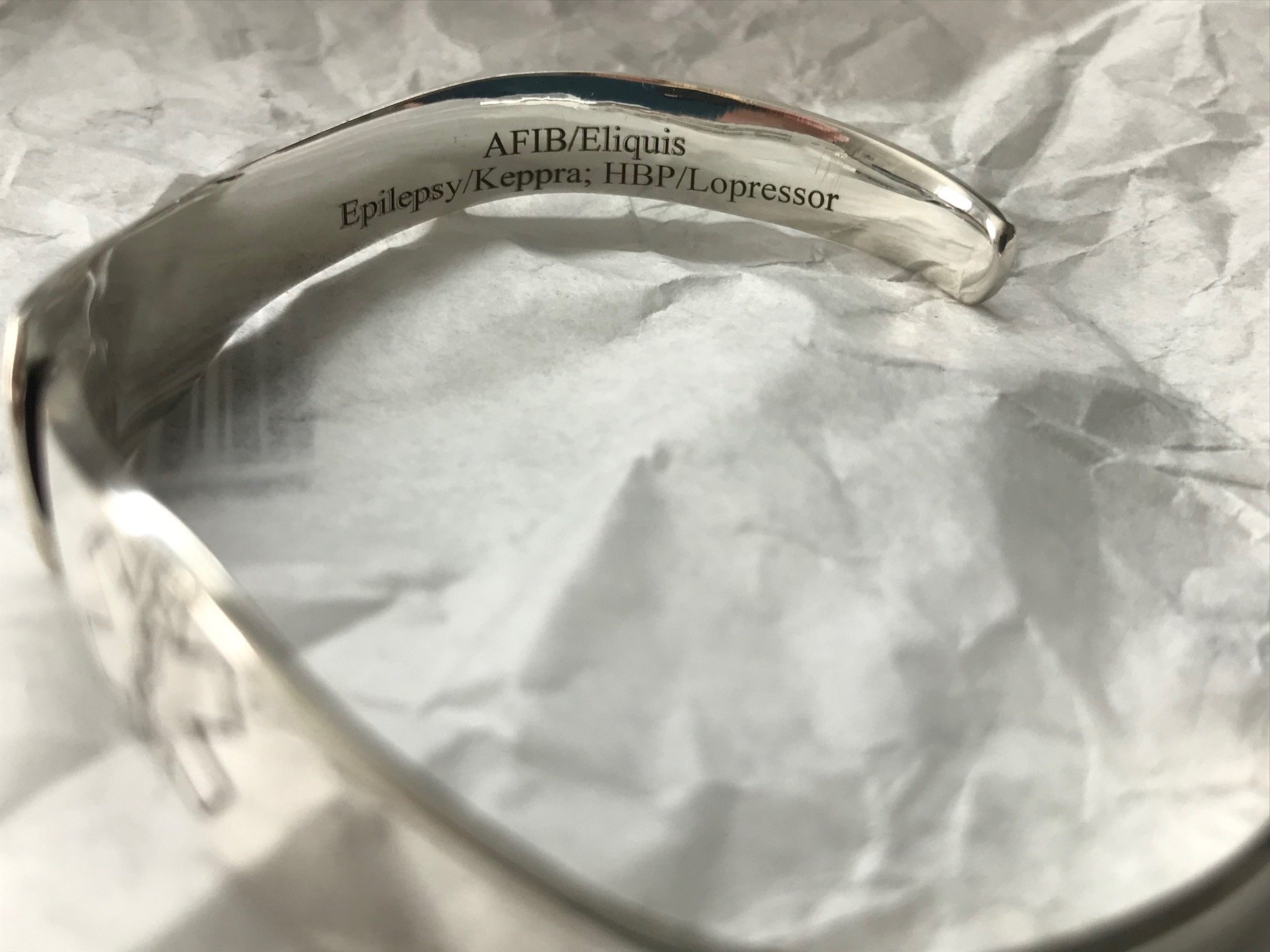Epilepsy Bracelets
Epilepsy is a neurological disorder that affects the central nervous system, causing seizures or convulsions. It is estimated that around 50 million people worldwide have epilepsy, making it one of the most common neurological disorders. Epilepsy can affect people of all ages and backgrounds, and it can have a significant impact on their daily lives. One important tool for managing epilepsy is a medical alert bracelet. In this article, we will explore what epilepsy is, how it can affect people, and why wearing a medical alert bracelet is essential for people living with epilepsy.
Why Wear a Medical Alert Bracelet?
One essential tool for managing epilepsy is a medical alert bracelet. A medical alert bracelet is a piece of jewelry that contains information about a person's medical condition, including any medications they are taking and any allergies they may have. In the case of epilepsy, a medical alert bracelet can provide critical information about a person's seizure disorder, including the type of seizures they have and any specific triggers that may cause seizures.
In an emergency situation, such as a seizure, medical personnel can quickly identify the person's medical condition by looking at their medical alert bracelet. This information can help medical personnel to provide appropriate care, such as administering medications or performing first aid. Medical alert bracelets can also be helpful for people with epilepsy who may have difficulty communicating during or after a seizure. By providing critical medical information, a medical alert bracelet can help to ensure that people with epilepsy receive the best possible care in an emergency.
Choosing a Medical Alert Bracelet
When choosing a medical alert bracelet for epilepsy, there are several factors to consider. The bracelet should be comfortable to wear and durable enough to withstand everyday use. It should also be easily visible and legible, with clear information about the person's medical condition. Many medical alert bracelets are made from stainless steel, which is hypoallergenic and long-lasting. Some bracelets also have interchangeable bands, allowing for customization and style.
Epilepsy is a neurological disorder that can have a significant impact on a person's daily life. Managing epilepsy requires a combination of medication, lifestyle changes, and medical monitoring. One important tool for managing epilepsy is a medical alert bracelet. A medical alert bracelet can provide critical Information in an emergency.
What is Epilepsy?
Epilepsy is a neurological disorder that affects the brain's electrical activity, causing recurrent seizures. Seizures can be caused by a variety of factors, including genetic predisposition, head injury, stroke, brain infections, and brain tumors. However, in many cases, the cause of epilepsy is unknown.
Seizures can take many different forms, and their symptoms can vary widely depending on the part of the brain that is affected. Some people may experience a loss of consciousness or convulsions, while others may have milder symptoms such as confusion or staring spells. Seizures can last from a few seconds to several minutes, and they can occur spontaneously or be triggered by specific stimuli such as flashing lights or sudden noises.
Living with Epilepsy
Living with epilepsy can be challenging, as seizures can occur unexpectedly and interfere with a person's daily activities. Seizures can also have significant social consequences, including stigmatization and discrimination. People with epilepsy may have difficulty finding employment or participating in certain activities, and they may also experience social isolation and loneliness.
Managing epilepsy requires a combination of medication, lifestyle changes, and medical monitoring. Medication can help to reduce the frequency and severity of seizures, but it may also have side effects such as drowsiness or nausea. Lifestyle changes, such as getting enough sleep, avoiding alcohol and drugs, and managing stress, can also help to prevent seizures. Medical monitoring, including regular check-ups with a neurologist and electroencephalogram (EEG) testing, can help to assess the effectiveness of treatment and identify any changes in seizure patterns.
Epilepsy Online Resources
Epilepsy Foundation: The Epilepsy Foundation is a leading organization dedicated to supporting people with epilepsy and their families. They offer educational resources, advocacy efforts, community support, and information about treatment options.
CURE Epilepsy: Citizens United for Research in Epilepsy (CURE) focuses on funding epilepsy research to find cures and better treatments for the condition. They also provide information and resources for individuals and families.
International League Against Epilepsy (ILAE): ILAE is a global organization that promotes research, education, and advocacy for epilepsy. They provide resources for healthcare professionals and patients, including guidelines and educational materials.
National Institute of Neurological Disorders and Stroke (NINDS): NINDS, a part of the National Institutes of Health (NIH), provides research-based information on neurological disorders, including epilepsy. Their website offers information on causes, treatments, and ongoing research.
Epilepsy Action: Epilepsy Action is a UK-based organization that provides information, support, and advocacy for people with epilepsy. They offer resources, campaigns, and services to help individuals manage their condition.
MyEpilepsyTeam: MyEpilepsyTeam is an online platform that allows individuals with epilepsy to connect, share experiences, and provide support to one another. It's a social network designed to build a community around epilepsy.
Child Neurology Foundation: While not exclusively focused on epilepsy, the Child Neurology Foundation offers resources and support for children and families affected by various neurological conditions, including epilepsy.
Epilepsy Society: The Epilepsy Society is a UK-based organization that provides information, support, and research funding for epilepsy. They offer resources, support groups, and information about epilepsy-related issues.



